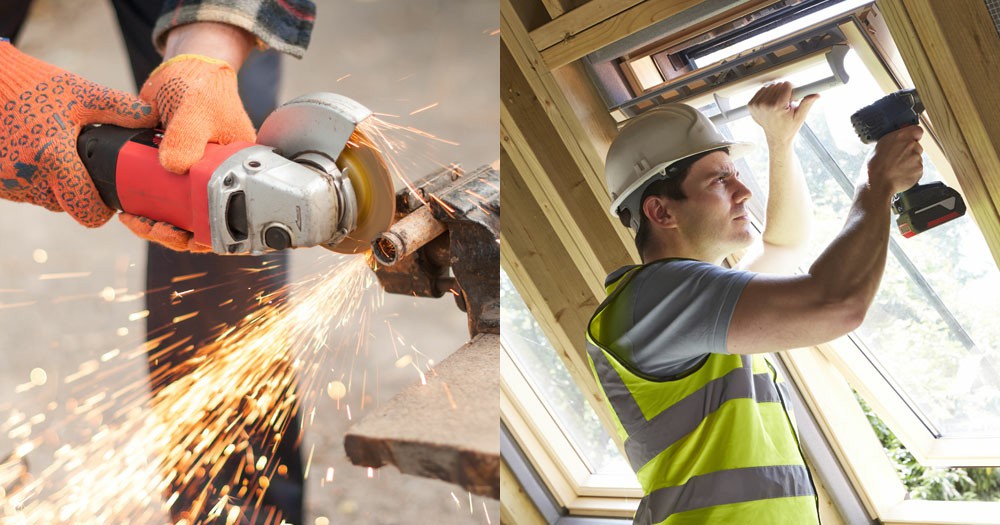Understanding Abrasive Wheels: The Essential Guide to Safety and Certification in Ireland
Abrasive wheels are an integral part of various industries, particularly those involved in construction, manufacturing, and metalworking. This complete resource delves into the definition, types, common risks, legal requirements, and training options surrounding abrasive wheels, ensuring you are well-equipped to prioritize safety in your workplace.
What Are Abrasive Wheels?
Abrasive wheels are specially designed tools composed of abrasive grains combined with a bonding agent. They are primarily used for cutting, grinding, and polishing materials like metal, wood, and concrete. Their efficiency and versatility make them a common sight in workshops across cities like Dublin, Cork, Galway, Limerick, Waterford, and many others.
Types of Abrasive Wheels
- Grinding Wheels: Ideal for surface grinding, removing material from a workpiece.
- Cutting Wheels: Designed specifically for cutting through hard materials.
- Flap Discs: Used for blending and finishing applications.
- Diamond Wheels: Excellent for high-performance grinding and cutting.
Common Risks Associated with Abrasive Wheels
While abrasive wheels are invaluable, they also pose serious risks, such as:
- Improper handling leading to accidents.
- Wheel breakage or explosion, causing potential injury.
- Inadequate personal protective equipment (PPE) increases vulnerability to injuries from debris.
- Noise-induced hearing loss from prolonged exposure to loud machinery.
Legal Requirements and Compliance
In Ireland, compliance with safety standards is critical when using abrasive wheels. Relevant regulations include:
- The Safety, Health and Welfare at Work Act mandates that employers ensure a safe working environment.
- Proper risk assessments of abrasive wheel operations must be conducted.
- Employees must receive adequate training, ensuring their safety and compliance with legal obligations.
Importance of Abrasive Wheels Training
Obtaining an Abrasive Wheels Certificate is essential for both employees and employers for numerous reasons:
- Improved Workplace Safety: Trained employees are equipped with the knowledge to handle tools safely, minimizing risks.
- Legal Compliance: Certification helps meet regulatory requirements and avoid potential fines.
- Enhanced Career Opportunities: Certifications can make candidates more attractive to employers looking for skilled workers.
Training Options for Abrasive Wheels Certification
Individuals seeking abrasive wheels training have several options available:
- Abrasive Wheels Course Dublin: Comprehensive on-site training to meet local industry standards.
- Abrasive Wheels Training Cork: Focused sessions targeting specific workplace needs.
- Abrasive Wheels Certification Galway: Classes tailored to the unique landscape of Galway's industrial sector.
- Abrasive Wheels Online Course: Flexible e-learning options for busy professionals.
Best Safety Practices for Abrasive Wheels
To maximize safety when using abrasive wheels, consider the following recommendations:
- Always wear appropriate PPE, including goggles, gloves, and hearing protection.
- Regularly inspect wheels for damage and ensure they are rated for the intended use.
- Follow the manufacturer's guidelines for mounting and using abrasive wheels.
- Conduct regular safety training and refreshers to keep safety top-of-mind for all employees.
Conclusion
By prioritizing proper training and obtaining your Abrasive Wheels Certificate, you not only enhance workplace safety but also ensure compliance with Irish regulations. Whether you're located in Dublin, Cork, Galway, Limerick, or Waterford, taking the steps towards certification is imperative for a safer working environment.
Ready to Enroll in Abrasive Wheels Training?
Contact us at [email protected] or visit our Abrasive Wheels Course page for more information. Empower your workforce with the knowledge to operate safely!



 349,500 Offered Certificates
349,500 Offered Certificates
 24/7 Online Training
24/7 Online Training
 Money Back Guarantee
Money Back Guarantee
 Fully Accredited Courses
Fully Accredited Courses
